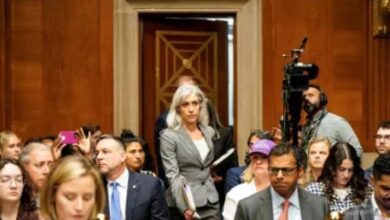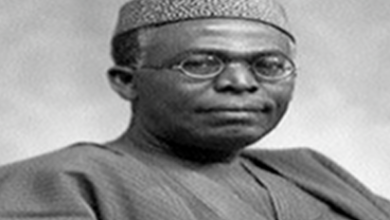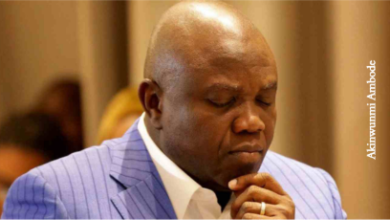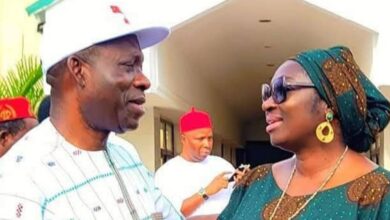BREAKING: Trump designates Antifa as terrorist organization, sparking legal and political uproar
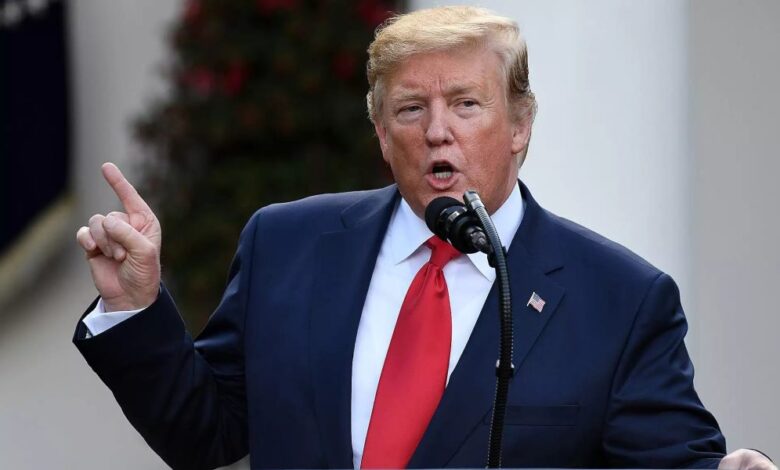
(DDM) – Former United States President Donald Trump has announced that he is officially designating the far-left anti-fascist movement, known as Antifa, as a terrorist organization.
Diaspora Digital Media (DDM) gathered that Trump made the announcement through his Truth Social platform early Thursday morning UK time while attending a state visit overseas.
In his post, Trump called Antifa “a sick, dangerous, radical left disaster” and declared that financial backers would be thoroughly investigated.
He promised to recommend the “highest legal standards and practices” against individuals or organizations suspected of supporting Antifa’s activities.
Trump said the designation was only the first step in a wider campaign to combat what he described as political violence from the left.
White House officials later confirmed that the administration is reviewing multiple actions to restrict groups they claim are tied to violent protests.
The declaration comes as tensions remain high following the assassination of conservative activist Charlie Kirk, which has reignited ideological divisions across America.
Administration insiders suggest that Kirk’s murder has emboldened Trump to pursue aggressive measures against those he views as domestic threats.
The announcement recalls Trump’s first presidential term when he attempted a similar move against Antifa in the wake of protests.
Back then, his Attorney General William Barr described Antifa’s activities as “domestic terrorism,” though no legal framework supported a terrorist designation.
Antifa, short for anti-fascist, is not an official organization but rather a loose network of activists who oppose authoritarianism and far-right extremism.
Members often organize through small cells or online networks, making it difficult for authorities to trace leadership or impose legal restrictions.
Antifa activists are known for their presence in protests, sometimes clashing violently with police or right-wing groups.
However, researchers and civil rights defenders note that the group’s lack of formal structure makes it nearly impossible to classify under U.S. terror laws.
American legislation currently allows the State Department to label foreign organizations as terrorist groups, but no equivalent process exists for domestic actors.
Legal scholars warn that Trump’s move may carry little practical weight beyond political messaging to his supporters.
Still, his call for investigations into Antifa’s alleged financial supporters could have significant consequences for nonprofits, universities, and advocacy groups.
Civil liberties organizations argue that targeting donors risks undermining First Amendment protections on free speech and freedom of association.
Democrats accuse Trump of exploiting a national tragedy to justify cracking down on political opposition under the guise of national security.
They claim the move could be used as a pretext to suppress progressive voices and criminalize legitimate protest movements.
Supporters of the former president, however, believe the decision signals strength and a willingness to defend conservative Americans from political violence.
Some right-wing commentators have praised Trump’s announcement as long overdue, saying Antifa has caused chaos in cities during demonstrations.
The controversy is not confined to the United States, as foreign governments and human rights groups are also watching developments closely.
Analysts warn that labeling Antifa as a terrorist group could inspire other nations to pursue similar crackdowns on protest movements.
They note that in authoritarian states, such moves have often been used to silence dissent and weaken democratic freedoms.
The timing of Trump’s announcement, during a formal state visit, has also drawn international attention and raised questions about diplomatic repercussions.
Observers suggest that foreign leaders may view Trump’s rhetoric as a reflection of America’s deepening political divisions.
The debate now centers on whether Trump’s declaration will carry any binding effect or remain largely symbolic.
Critics caution that even symbolic moves can reshape public opinion and influence how law enforcement handles protest-related cases.
With the U.S. already polarized, the designation of Antifa adds another layer of controversy to an already heated national climate.
Trump’s announcement may also dominate domestic debates in the coming weeks as political campaigns seize on the issue for advantage.
For now, the designation stands as both a symbolic political message and a flashpoint for wider questions about civil liberties in America.
Post Views: 33

